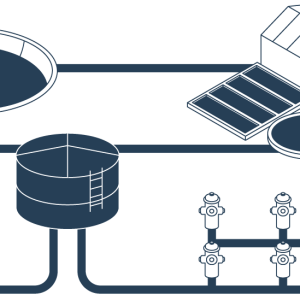
Wolverhampton Wanderers are a soccer club in sort of the same way that Silvio Dante’s Bada Bing was an adult entertainment concern; technically it is indeed part of that industry, but the real business all takes place in the offices in the back.
In Wolves’ case, superagent Jorge Mendes is to the club what Tony Soprano was to the Bada Bing. Since Chinese investment group Fosun International bought the club in 2016, the Old Gold has seemed to operate principally as a clearing house for Gestifute, Mendes’s talent agency. This hasn’t been the worst fate in the world. After spending about a decade and a half bobbing up and down England’s top three divisions, with only brief spells in the promised land, the Mendes-puppeted Wolves quickly returned to the Premier League and have established themselves as midtable stalwarts for going on seven seasons now.
The regular shuffling of Wolves’ deck of players usually results in talented, heavily Lusophone rosters that are nonetheless lopsided in favor of midfielders and attackers—no surprise considering squad planning is guided more by what makes cents for Gestifute than by what will produce the most solid Wolves team. The current season is no exception. Os Lobos can boast arguably the strongest attacking line in England outside of the Big Six. They can field an entire starting XI with players who have already or likely will in the future play in the Champions League. At the next international break, Wolves will probably send more players to the Brazilian national team than Real Madrid will. Yet it is a testament to the competitiveness and depth of the Premier League, and to the awfulness of Wolves’ defense, that as recently as a month ago the team had only one EPL point to its name. Still, if Wolves’ season thus far has been pretty shitty, it’s not been hopelessly so, and that is in large part thanks to Matheus Cunha.
Cunha is one of the trademark strange, over-qualified signings that have typified Wolves in the Mendes era. (While Cunha isn’t a Gestifute client himself—though a solid 20 percent of the current Wolves roster is!—Mendes has his hands in so many cookie jars that you can’t rule out him having had a big influence on the Brazilian’s move to Molineux.) After embarking on the treacherous climb up the European soccer ladder in 2017 by joining Swiss club Sion as an 18-year-old, Cunha’s skills made his ascent a quick one: Sion to Leipzig in 2018, Leipzig to Hertha Berlin in 2020, and Hertha to Atlético Madrid in 2021, racking up more than €60 million in transfer fees along the way, about half of that coming from the Atlético move.
Like many an exciting attacker who’s landed on the striped side of Madrid, Cunha didn’t exactly thrive in Diego Simeone’s notoriously defensive-minded system. Cunha is a classic second striker in an era that has largely done away with strike partnerships. Simeone is one of the rare big-club managers who still features second strikers, but with Antoine Griezmann, João Félix, and Ángel Correa already on Atlético’s books, Cunha was never likely to get much run in his preferred role. Instead, Cunha, like many young second strikers in this day and age, had to try his hand at leading the line. Though his spell in Spain was hardly a disaster, Cunha never did enough to convince anyone that his attempted transformation into a top-class out-and-out center forward was likely to succeed. After just a year and a half with Atleti, Cunha was deemed surplus to requirements and tossed onto the chopping block.
And that is how Matheus Cunha—a full Brazil international just entering his prime, coming off an underwhelming but still decent stint with a huge club—found himself at a random club like Wolverhampton Wanderers. Even with the Premier League’s well-established financial might, Wolves are the only midtable outfit in England you could see somehow luring in a player with Cunha’s resumé and price tag (€50 million!). Yet Wolves indeed got their man, and the signing has worked fantastically for all involved.
Things didn’t click immediately. Cunha’s first half-season in England after joining in January of 2023 was largely anonymous. In a strike partnership with an old and half-interested Diego Costa—yes, that Diego Costa; no points for correctly guessing who his agent is—Cunha struggled to shake off the rust he’d built up on Atleti’s bench and rebuild his confidence. (Cunha has said that missing out on the 2022 World Cup roster earlier that winter, and the resulting blow to his self-esteem, was the most difficult thing he’s had to deal with in his career.) But the 2023-24 season saw him hit the best form of his career. His 12 goals and seven assists in league play speak to his productivity, but they fail to encapsulate the full breadth of his skills, which, like any good second striker’s, comprise far more than just getting the ball into the back of the net.
So far this season, in spite of Wolves’ lowly position on the table, Cunha has been even better than before. In 12 league appearances this season he already has seven goals and three assists, giving him 29 goal contributions in 42 matches since the start of last season. After taking only one point from their first eight matches, Wolves have since clawed their way out of the relegation zone. The recent turnaround is down almost entirely to Cunha. In Wolves’ last four games, where they’ve picked up eight points, the Brazilian has gotten four goals and three assists, including two goals and another assist against Fulham in Saturday’s 4-1 win.
Both of Cunha’s goals on Saturday were gorgeous, and deserve to be lavished with attention. On the first he ran onto a screaming bomb over the top of the Fulham defense, sent there by Mario Lemina, and with the toes of his right foot he plucked it out of the sky as if it were a falling feather. With a delicate touch from his thigh and then a flick of his foot, the ball was in the back of the net to tie the score at 1-1. Three simply exquisite touches, all in rapid succession, and on a dead sprint:
The second Cunha goal—his two strikes sandwiching the nifty no-look, reverse pass he played to set up compatriot João Gomes’s goal—was just as impressive, a first-time pile-driver from outside the box into the far top corner, a shot almost contradictory in nature due to the subtle elegance of his swinging motion and the violence force it imbued the ball with:
Again, though Cunha’s game includes goals and assists—and increasingly so, going off his soaring numbers in England—his style of play isn’t limited to or even really defined by his direct contributions to the scoresheet. Cunha is not an instinctive goalscorer, the kind who hunt cut-backs and rebounds with a single-minded obsession, who gorge their stats on tap-ins and mis-hits and unrefined but reactive and effective finishes. In that way his two goals against Fulham were indicative of his scoring exploits—he’s far more likely to score by finessing the ball into the top corner than by scruffing it over the line. To dust off a cliche, Cunha is more a scorer of great goals than a great goal-scorer. His finishing isn’t very strong, and he’ll fail to convert some chances even less talented strikers would put away, for lacking the killer instinct to shoot whenever the opportunity arises.
What Cunha is, though, is a great ball-striker who can arm and release powerful shots in a flash, and a master at finding space into which to receive passes regardless of where he is on the field. He’s also an exceptional dribbler, one of the best central dribblers in the entire league in fact. (It’s much harder to beat players with the ball from high and central positions than it is to do so deeper or out on the wings, and the rewards for dribbling high and centrally are greater as well.) Away from the penalty area is where he really shines. He wanders the full length of the pitch in search of combination plays or solo dribbles or decoy runs, all of which help his team control the ball, create space for himself and others, and add menace to otherwise idle possessions. Cunha relies on having total freedom to detach himself from his starting position and go follow his muse, and the rewards are manifold. For a team like Wolves, Cunha’s talents are crucial, as by himself he can ensure that the whole team plays well.
In light of the level he’s shown over the past two seasons, it’s probably only a matter of time before a big club comes to take Cunha back to a place more befitting of his skills than the lower end of the Premier League. That’s a little unfortunate. While Cunha has proven his excellence in England, he’s nevertheless done so in a position and with a freedom he’s unlikely to enjoy in the kind of club that could afford him. He is, after all, still a second striker in an era skeptical of them, and plays best in setups designed specifically to indulge his whims, which wouldn’t be the case in teams where he isn’t the clear star. It’s still as a true, lone center forward—able to do all the neat and helpful things he does outside of the penalty area but to also get in there and thump in 20-some goals a season—that he would best serve the kinds of systems he’d likely find in the elite clubs, and even with his swelling goals and assists numbers, he still doesn’t look like that kind of player.
Thankfully, we still have this fully maximized Cunha to savor for at least a while longer. With on-ball talents like Cunha, Jorgen Strand Larsen, João Gomes, André, Jean-Ricner Bellegarde, Rayan Ait-Nouri, Mario Lemina, Gonçalo Guedes, and Hwang Hee-chan (did I mention that Wolves squads tend to be top-heavy?), the team should be able to knock in enough goals to compensate for all the ones they’ll inevitably give up in the other direction, and stay in the Premier League. Whether Cunha leaves next summer or the one after that, and whether he finds himself in an ideal setup at a top-quadrant continental club or if he’s back on another title contender’s bench, his uncertain future shouldn’t prevent Wolves fans from dazzling in his touches and dribbles and golazos while he’s still there. Cunha might not exactly belong at Wolves, but no one could deny how well the crest suits him.





